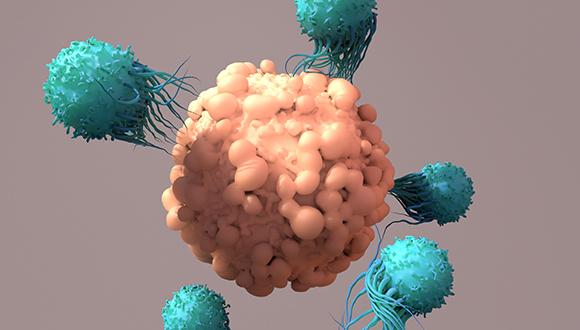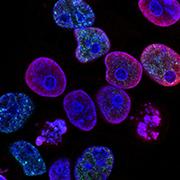Targeting cancer glycosylation with CAR-T cells for therapyresponses
|
Targeting cancer glycosylation with CAR-T cells for therapyresponses Modality:Gene/Cell Therapy |
|
Outline
Adoptive T cell therapy is a promising immunotherapy, yet identifying cancer antigens is challenging. All cancer cells harbor diverse cell surface carbohydrate neoantigens on glycolipids and glycoproteins, with altered expression of sialic acids, that correlate with cancer progression and/or metastasis. Here, we propose an innovative approach for cancer immunotherapy to target tumor-associated carbohydrate neoantigens (TACAs).
Our solution
T cells with engineered chimeric antigen (CAR) receptors will target TACA-neoantigens expressed on various carcinomas. FDA-approved CD19-CAR T cell therapy is highly effective for hematological malignancies, but treatment of solid tumors, especially of carcinomas, is yet to be achieved. Hence targeting TACA for immunotherapy of carcinomas has a tremendous translational potential addressing the need for the treatment of solid tumors.
Current development stage
- Generated highly specific antibodies against TACAs
- Constructed several CAR-T cells against selected TACAs on several human and mouse cell lines
- CARs were expressed in mouse and human T-Cells
- Initial promising in-vivo results were obtained (Head and Neck, Melanoma)
Novelty
To our knowledge there is no CAR T cell that is specific to a sugar only. The sweet CAR that are shown today are against a sugar attached to a specific protein. This limits the CAR against the specific protein. Our CAR against TACAs is specific to the modification on the sugar itself
Patents
Provisional patent application was filed
Related researches >>
Related videos >>
Gallery >>





